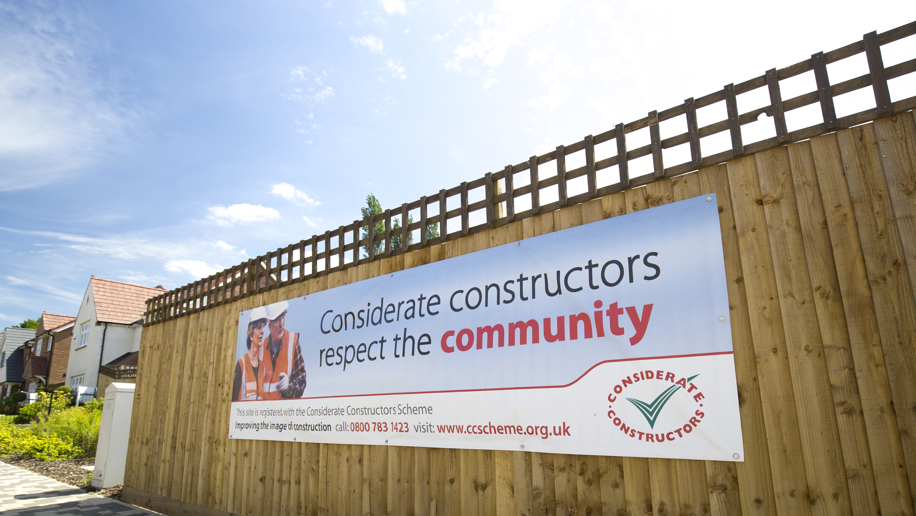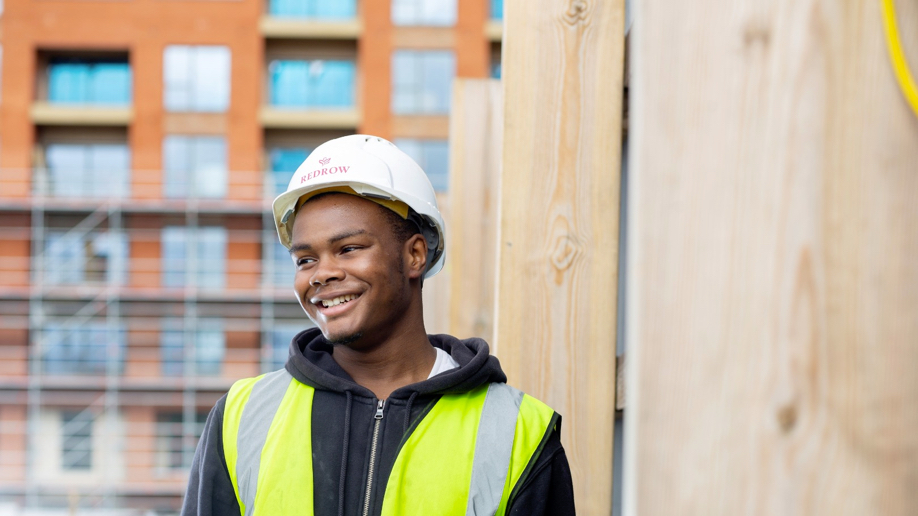
Our commitments
We develop and monitor key objectives across our activities to continually drive improvements in social, environmental and economic performance.
Our aims
To create long term sustainable value for all our stakeholders by developing thriving communities with high quality homes that provide a better way to live.


Safe & considerate construction
We are working to become incident and injury free.
Customers & quality
We aim to deliver 90%+ customer satisfaction rating and are implementing a certified quality management system.
Resources
We intend to further reduce carbon, waste and water use from our activities, locally source 90% of our products and ensure 100% of our timber is responsibly procured.


Placemaking
We plan to enhance community engagement and follow robust placemaking principles when designing new developments.
Nature for people
We are working to achieve verified increases in biodiversity across our developments.
Wellbeing & legacy
We will evaluate health and wellbeing outcomes for people on and near our developments and measure the value to people of the community infrastructure we deliver.


People development
We intend to ensure 15% of our workforce are trainees and 80% of in-house courses are accredited as well as developing plans for enhanced supply chain engagement.
Wellbeing
We are working to develop an employee health and wellbeing strategy.
Encouraging young people into construction
We are collaborating with education partners to develop new programmes, including a focus on engaging hard-to-reach parts of the community.
Charity & community
We plan to implement structured charitable giving, community activities and employee volunteering opportunities.
We are committed to our strategic themes - building responsibly, thriving communities & valuing people. Find out how we are performing against our targets below.
Key
Building responsibly
Working safely and considerately
| Objectives | Targets | Progress | Narrative | ||||||||||||
|---|---|---|---|---|---|---|---|---|---|---|---|---|---|---|---|
Safety |
|
||||||||||||||
Putting our customers first
| Objectives | Targets | Progress | Narrative | |||
|---|---|---|---|---|---|---|
Service excellence |
|
|||||
Managing our resources efficiently
| Objectives | Targets | Progress | Narrative | ||||||||||||||||||||||||
|---|---|---|---|---|---|---|---|---|---|---|---|---|---|---|---|---|---|---|---|---|---|---|---|---|---|---|---|
Responsible sourcing |
|
||||||||||||||||||||||||||
Quality and productivity |
|
||||||||||||||||||||||||||
Environmental impact |
|
||||||||||||||||||||||||||
Thriving communities
Creating better places to live
| Objectives | Targets | Progress | Narrative | ||||||
|---|---|---|---|---|---|---|---|---|---|
Community Collaboration in Design |
|
||||||||
Learning from Lifestyles |
|
||||||||
Placemaking |
We will commence a rolling programme of reviewing developments as they are completed and give each a final Redrow 8 score. By the end of FY22 we will have reviewed and scored at least 5 recently completed Redrow developments |
Read more > A process for the auditing of completed developments has been agreed and is now in place. A placemaking audit and final Redrow 8 assessment will be carried out for every Redrow development as it is completed. |
|||||||
Nature for people |
|
||||||||
Valuing people
Valuing and developing our people and partners
| Objectives | Targets | Progress | Narrative | ||||||||||||||||||
|---|---|---|---|---|---|---|---|---|---|---|---|---|---|---|---|---|---|---|---|---|---|
Training and development |
|
||||||||||||||||||||
Colleague Engagement. |
|
||||||||||||||||||||
Wellbeing and inclusiveness |
|
||||||||||||||||||||
Inspiring the next generation to build
| Objectives | Targets | Progress | Narrative | ||||||
|---|---|---|---|---|---|---|---|---|---|
Work with education partners |
|
||||||||
Communities |
|
||||||||
Life chances |
|
||||||||




